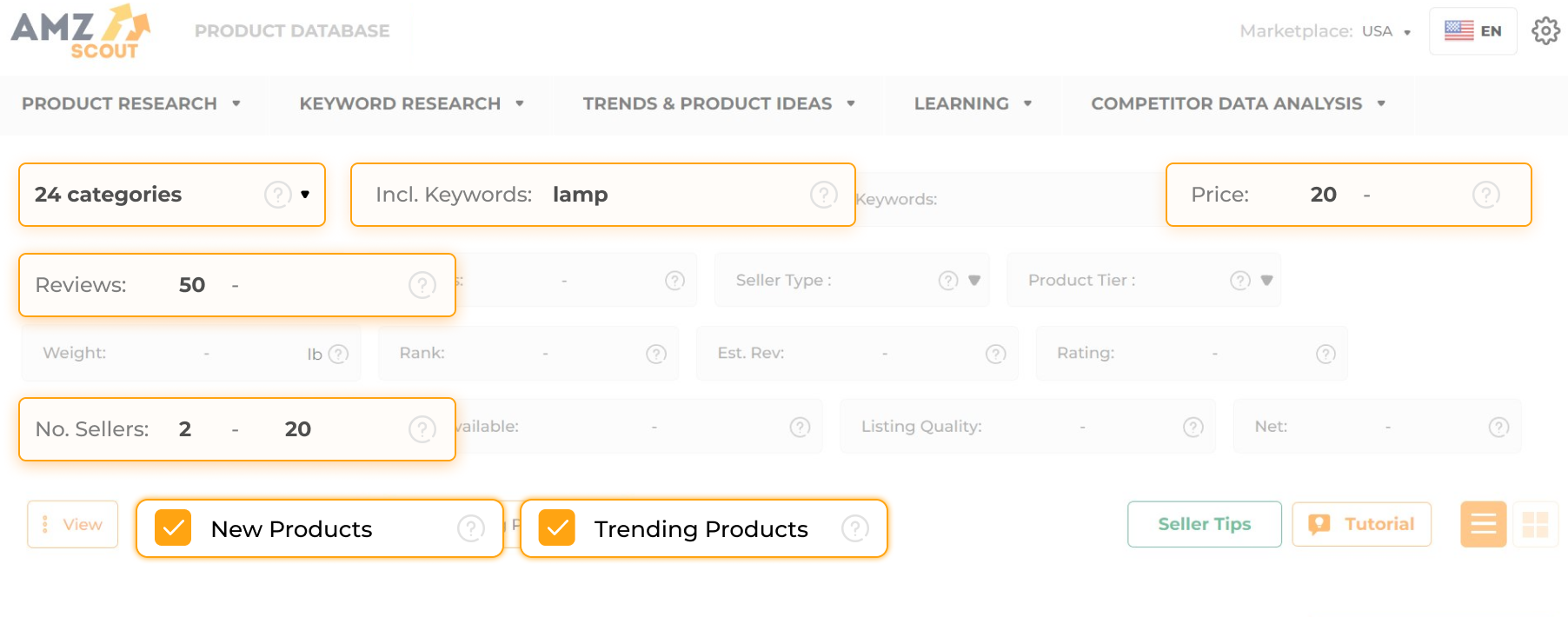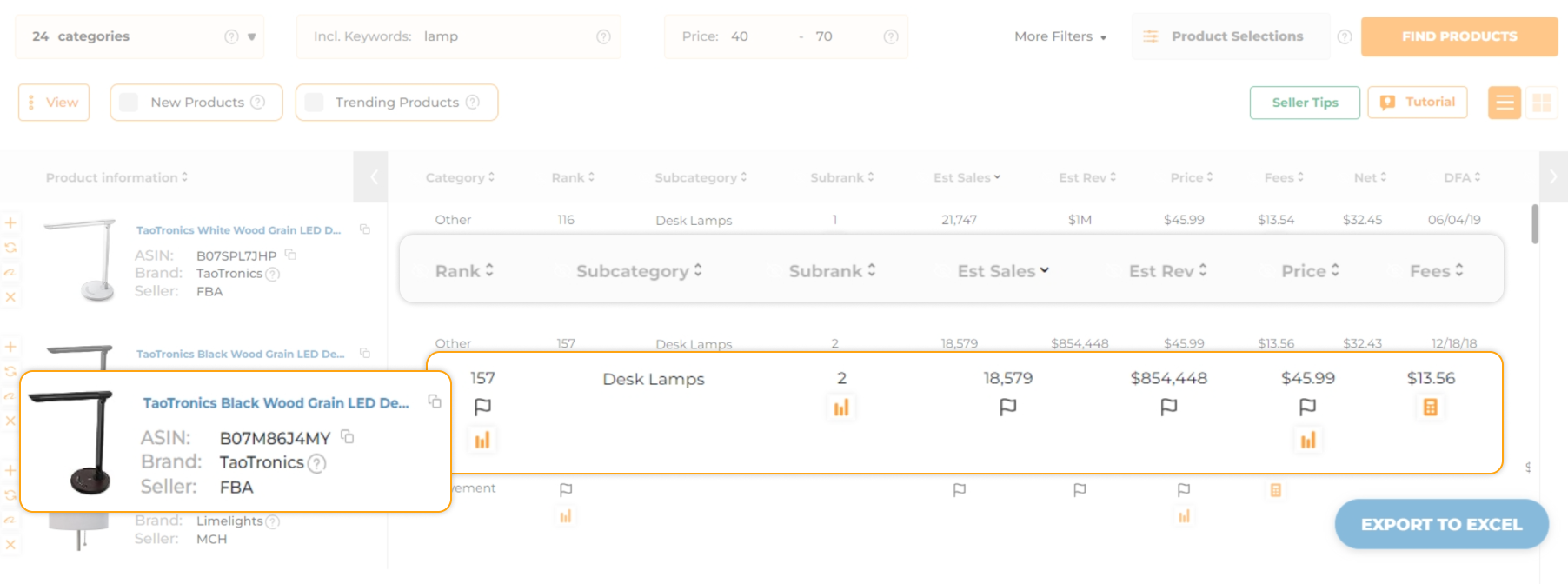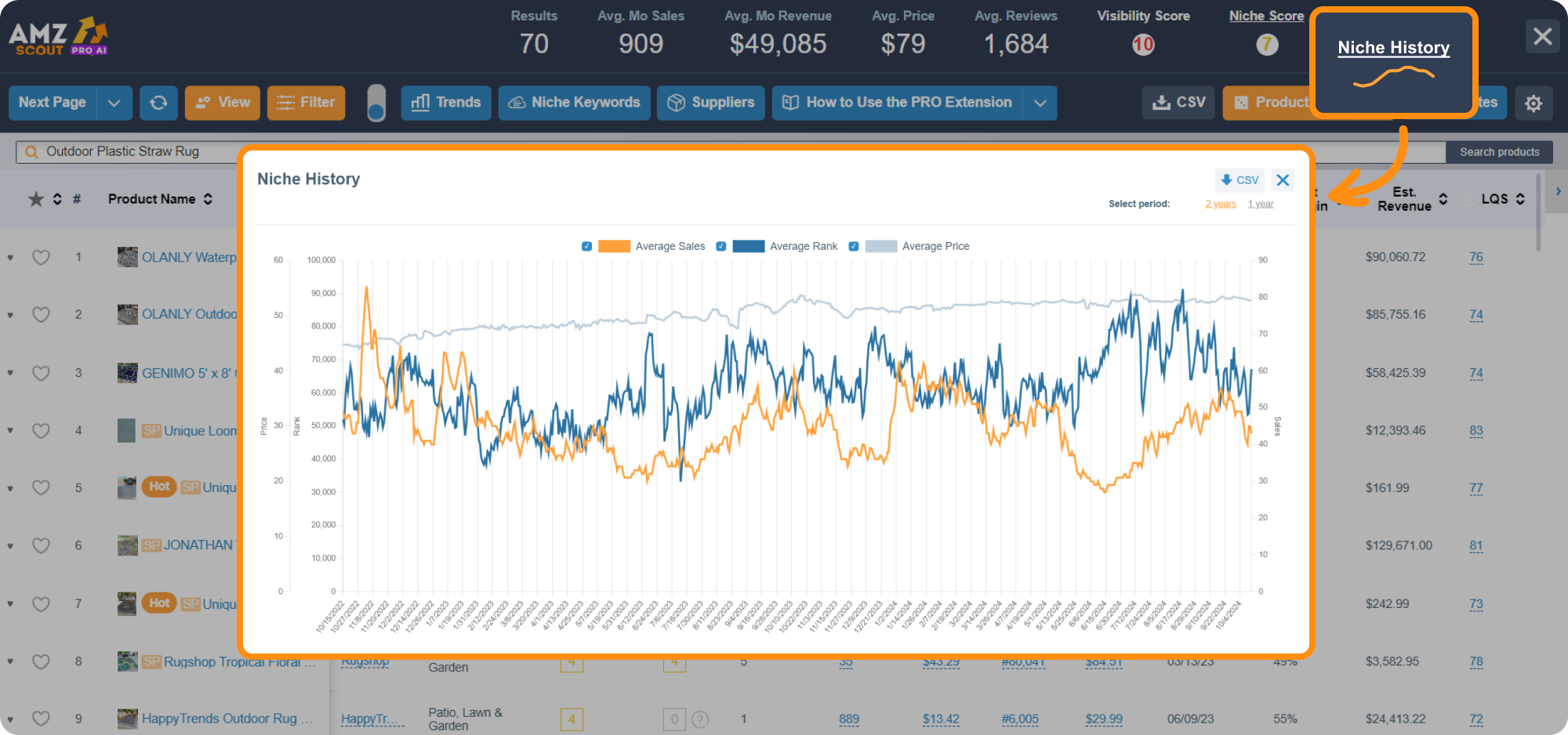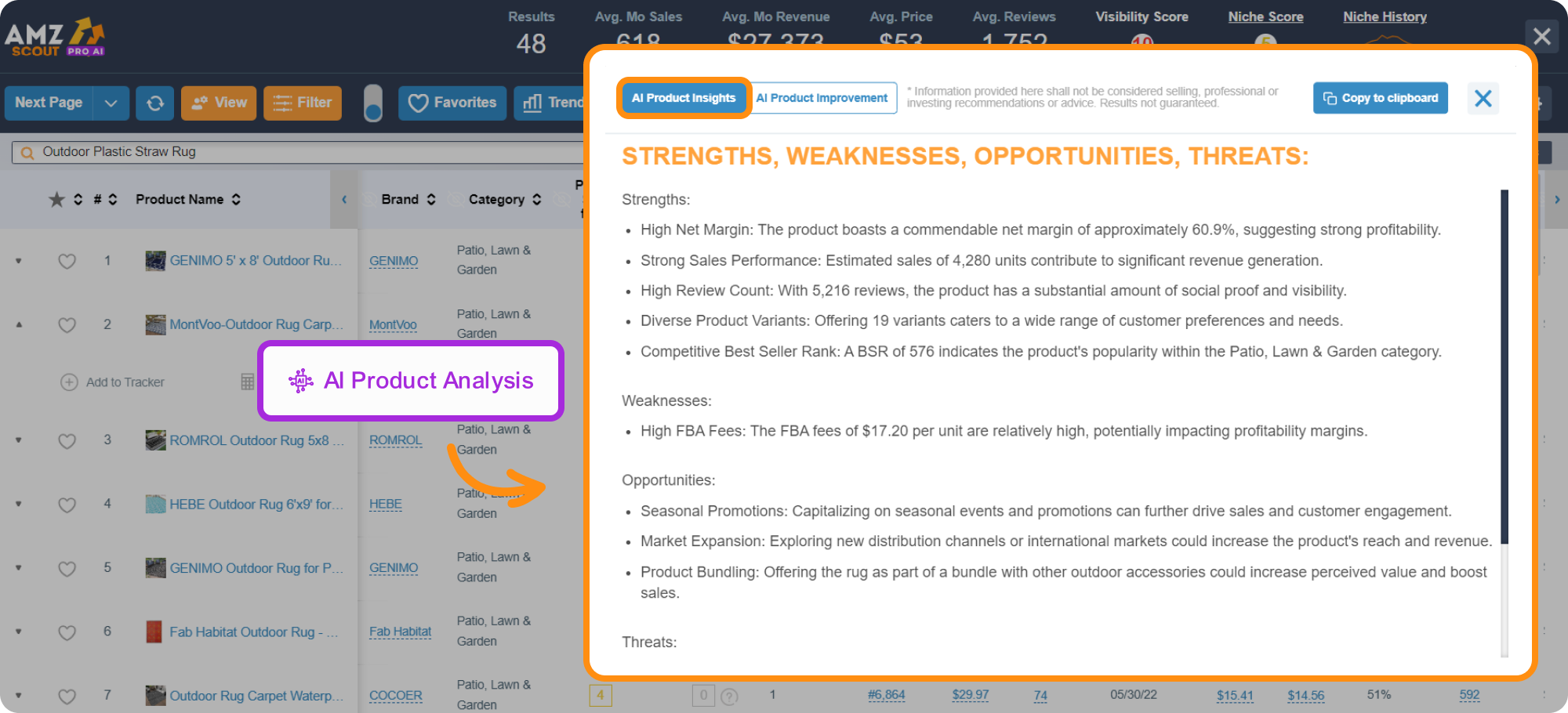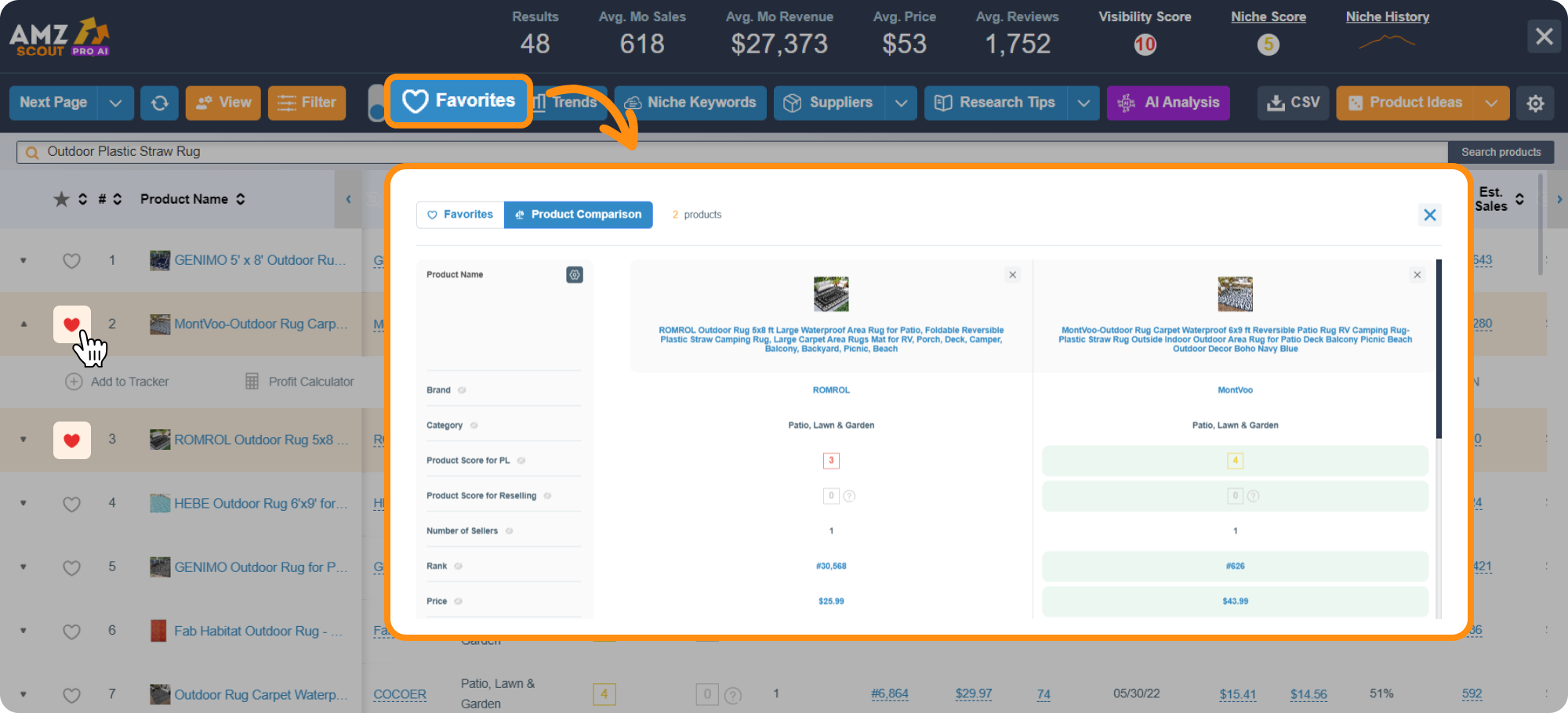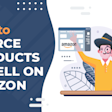
How to Start an Amazon FBA Business in 2025: A Step-by-Step Guide
In 2025, Amazon remains one of the most prominent and swiftly expanding e-commerce platforms worldwide. With its vast user base, this platform presents immense opportunities for merchants. Recent statistics reveal that Amazon hosts over two million active sellers, with approximately two-thirds of them favoring the Fulfillment by Amazon (FBA) method.
In this article, we'll discuss the specifics of Amazon FBA and how merchants can use it to grow their businesses on Amazon.
Table of contents
What is Amazon FBA?
Fulfillment by Amazon (FBA) is a service provided to sellers by Amazon, aimed at simplifying the logistics of selling on the platform. Merchants list their products on Amazon and send their inventory to Amazon's fulfillment centers. When a customer places an order, Amazon handles all aspects of packing and shipping products directly to the buyer.
Despite its obvious pros, many prospective Amazon sellers are hesitant about committing to the Amazon FBA program due to concerns over inflated FBA costs. Let's delve into whether utilizing the FBA business model is really worth it.
Can an Amazon FBA Business Be Profitable?
Absolutely. Selling via Amazon FBA can indeed yield significant profits, as Amazon prioritizes FBA sellers, giving them higher visibility among search results. The FBA business model can be particularly advantageous for startups, as it enables these sellers to reach a broader customer base and manage their business operations more efficiently, leading to increased revenue.
As FBA products tend to rank higher, sellers have more chances to win the Buy Box and secure a sale. Therefore, they can expect to earn a minimum of $1,000/month. Also, typically, more than half of sellers can anticipate making money within their first two months once they start using Amazon FBA.
One of the crucial factors determining financial viability and success in the competitive Amazon market is identifying the right product to sell. Let's explore which types of products are the best to sell, and how to pinpoint the most profitable ones.
What Products Should I Sell with Amazon FBA Business?
The FBA business model is better suited for those working with larger sales volumes and higher margins. To guarantee these factors, products should have the following characteristics:
High demand: To identify an item that’s in high demand among customers, check the search volume for keywords and assess its sales volume. Doing so helps you find products with consistent sales throughout the year.
Low competition: Promoting your business becomes more challenging in niches with many sellers or well-known big brands. Make sure there are no strong competitors with high sales volumes and numerous reviews.
Profitability: Assessing profitability is crucial to ensure that after all expenses and costs, there's a margin of at least 20% remaining. This ensures that sellers can cover the necessary FBA fees and still make a profit.
To identify profitable product opportunities, it's necessary to conduct thorough product research. However, collecting the necessary data to find these types of products manually can be time-consuming, or in some cases even impossible. Let's explore which tools can simplify this process and help you build your Amazon FBA business efficiently.
How to Find Product Ideas with the AMZScout Product Database
You can utilize the AMZScout Product Database to help you find initial product ideas based on your specific criteria. Just follow this quick set of instructions to learn how to do product research using this tool:
1. Open the AMZScout Product Database. Enter your email address to start a free trial (no credit card details needed).
2. Apply your search filters. There are 18 criteria to help you sort products, including choosing your desired category or entering specific keywords. The most universal parameters for identifying a profitable product idea are:
Estimated Sales: Ensure that the product’s monthly sales are over 300 to guarantee high demand.
Seller Type: Exclude products with Amazon as a seller in order to mitigate competition directly with Amazon for sales on the platform.
Weight: Remember that FBA fees are lower for lightweight products.
Price: Choose products priced higher than $40 to ensure a high margin.
Trending Products: Find products that have been experiencing growth in sales over the past one to three months.
3. Get your results. Click “Find Products” to get a list of products that match your criteria.
Once you've obtained a list of items, it's necessary to further examine them to ensure stable demand and profitability.
How to Check Product Profitability with the AMZScout PRO AI Extension
You can delve deeper into product ideas using AMZScout’s PRO AI Extension to access competition levels, monthly sales data, reviews, sales trends, and other relevant data for any Amazon product.
Here's a step-by-step guide on how to use the AMZScout PRO AI Extension:
1. Install the PRO AI Extension.
2. Search for a product. Enter the name of a product into the Amazon search field.
3. Open the AMZScout PRO AI Extension. Click on the AMZScout icon in the upper corner of your browser.
4. Assess the overall sales metrics for the niche. You can view a summary of statistics for all products within the niche in the window. This includes the estimated monthly revenue, sales volume, net margin, and more.
5. Assess demand stability in the niche. Individual product sales can vary due to factors like advertising changes or inventory issues. To gauge overall market trends, click “Niche History” in the upper-right corner. This will show you the sales performance of similar products within the entire category over time.
6. Analyze competitors’ performance. To evaluate your competitors, you can select a product or sort by metrics (like “Estimated Sales”) to highlight top-performing items. Click “Product History” under your chosen product to review key trends, including:
Sales: Analyze the sales pattern. Consistent or growing sales reflect favorable market conditions.
Reviews: Examine how reviews align with sales trends.
Pricing: Track competitors’ prices to develop a competitive strategy and position your product effectively.
7. Calculate profit. Click the Profit Calculator under the item you are considering to estimate whether the total FBA fees and other costs will not exceed the estimated monthly profit.
8. Determine whether you can develop a sales strategy for the product. Select “AI Product Analysis” to learn about a product’s drawbacks and advantages. This will help you understand if potential drawbacks can be mitigated, and if the opportunities align with your business goals.
If you’re launching your own brand: Use the “AI Product Improvement” feature within the AI Product Analysis to explore ways to stand out in the market. This tool offers tailored suggestions for enhancing the product, and explains how each modification could influence your business outcomes positively.
9. Save and compare your top picks. Add products that meet your criteria to your “Favorites” by clicking the heart icon next to their name. If you’re comparing multiple products, click “Product Comparison” in the Favorites menu to highlight each product’s strengths, and choose the best fit for your business.
Analyzing both the product and niche will help you identify profitable products, determine the right pricing strategy, and plan your inventory management effectively. While the process of starting an Amazon FBA business is relatively straightforward, many individuals are curious about the budget they’ll need in order to begin. Let's explore this further.
How Much Does it Cost to Start an Amazon FBA Business?
Nearly one-fifth of new sellers are able to launch their Amazon FBA business successfully with little money needed upfront (often less than $500). Typically, merchants invest between $2,000 to $5,000 in order to acquire inventory and set up advertising.


Alternatively, you can also explore purchasing an existing FBA business for sale. However, this option typically demands a significantly larger investment, starting at tens of thousands of dollars at a minimum.
The costs of starting an FBA business will vary depending on the chosen model, with the FBA business plan a crucial factor in determining one’s expenses. Among the various models including wholesale, private label, and arbitrage, private labeling stands out as the most optimal due to its affordable initial investment, potential for higher long-term profits, and greater control over your business.
Let's discuss how to start an Amazon FBA business for private label products.
Amazon FBA Private Label
Selling private label products through Amazon FBA entails developing items under your own brand. Typically, merchants collaborate with suppliers (often in China) to customize products that feature their own logo or brand name. Orders typically start at a minimum of 500 units of inventory.
Since you're selling a unique product, you don't need to compete for the Buy Box, and you can set your own prices. Establishing a strong brand also makes it easier to increase volume and scale your operations.
Here are the typical Amazon FBA steps for a private label business:
1. Select the product you plan to sell. Refer to the instructions on finding a profitable product above.
2. Find a reliable supplier. For example, consider Alibaba or local options. Negotiate the terms and place an order for your products to be manufactured.
3. Sign up for an Amazon Seller Account. You'll need to provide an ID, credit card information, and tax data. (For private label sellers, the Professional plan is the most suitable option to choose.)
4. Register your brand. Ensure compliance with all of the guidelines and laws applicable to your country, as they may vary. Additionally, consider utilizing Amazon’s Brand Registry to build and protect your brand.
5. Upload your product listing. When a product is new on Amazon, you'll need to create a new listing on Amazon and enter all relevant information about the product.
Create an SEO-optimized product title, description, and bullets. AMZScout’s AI Listing Builder can assist you significantly with crafting a compelling listing that is tailored for search engine optimization. This tool will save you time with its one-click keyword import feature, and provides a guide for comparing your listing against an ideal standard. If you find it challenging to create the essential text components of your listing, you can also rely on the built-in AI tool to generate them on your behalf.
Add high-quality product photos and videos.
Specify your desired quantity of items and set your price.
Select “Amazon will ship and provide customer service” as your preferred fulfillment type.
Save your listing.


6. Ship products to Amazon. Check Amazon's guidelines for packing and shipping products to Amazon’s fulfillment centers.
To sum up, offering private label products on Amazon provides entrepreneurs with greater opportunities to control their own brand and pricing as it simplifies sales and fosters business growth. That's why many Amazon sellers opt for this model to build their own businesses on Amazon.
Conclusion
Given the numerous benefits it offers, including logistical support and broad customer reach, Amazon’s FBA program is a great choice to help businesses thrive amidst the platform’s tough competition. To increase your chances of success and profitability, utilize AMZScout's tools for product research and listing optimization. With this combination, you can generate more sales through winning products and higher rankings.
